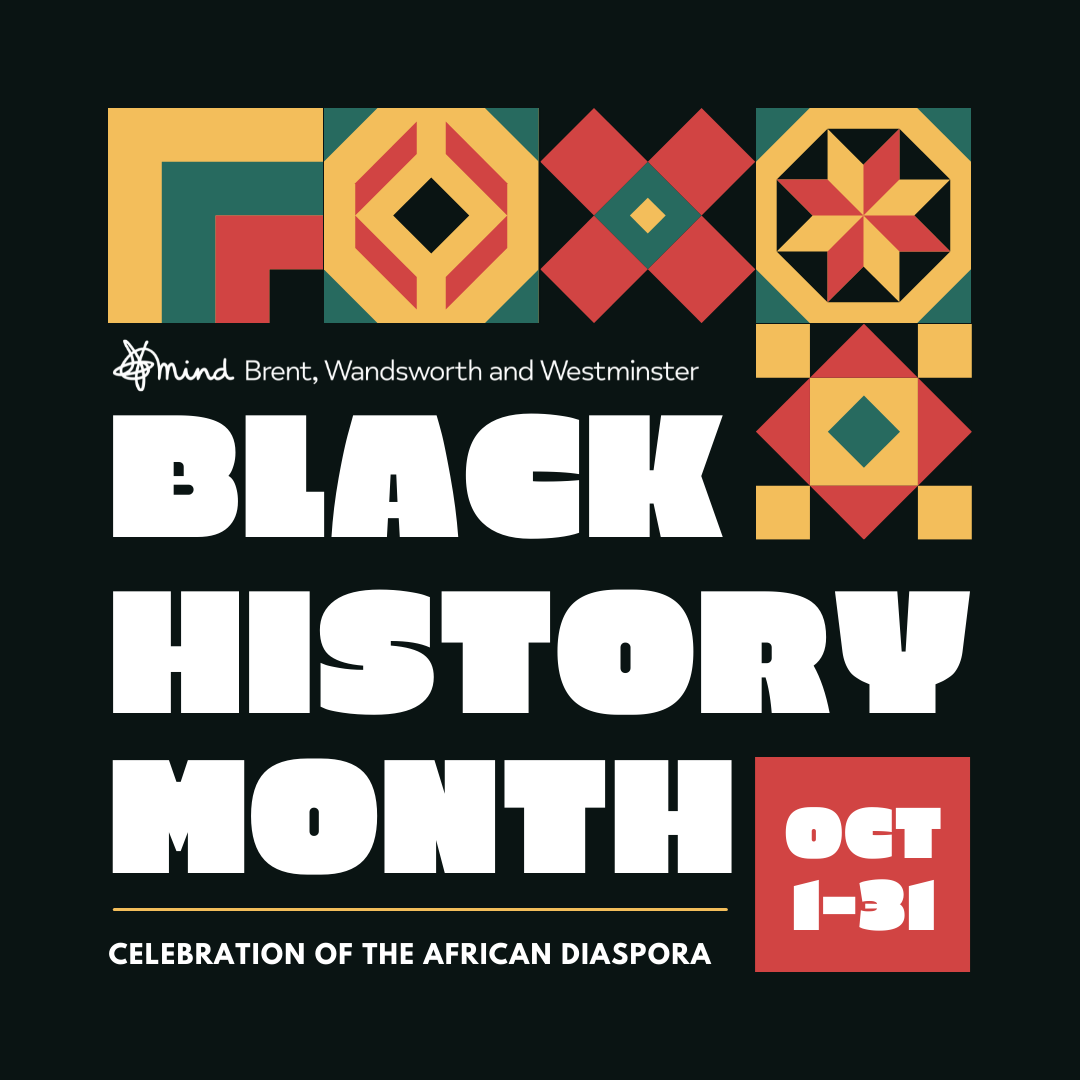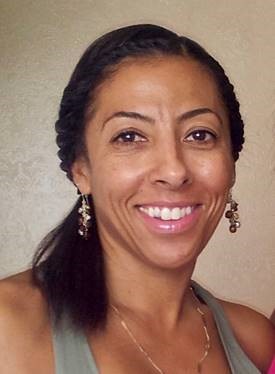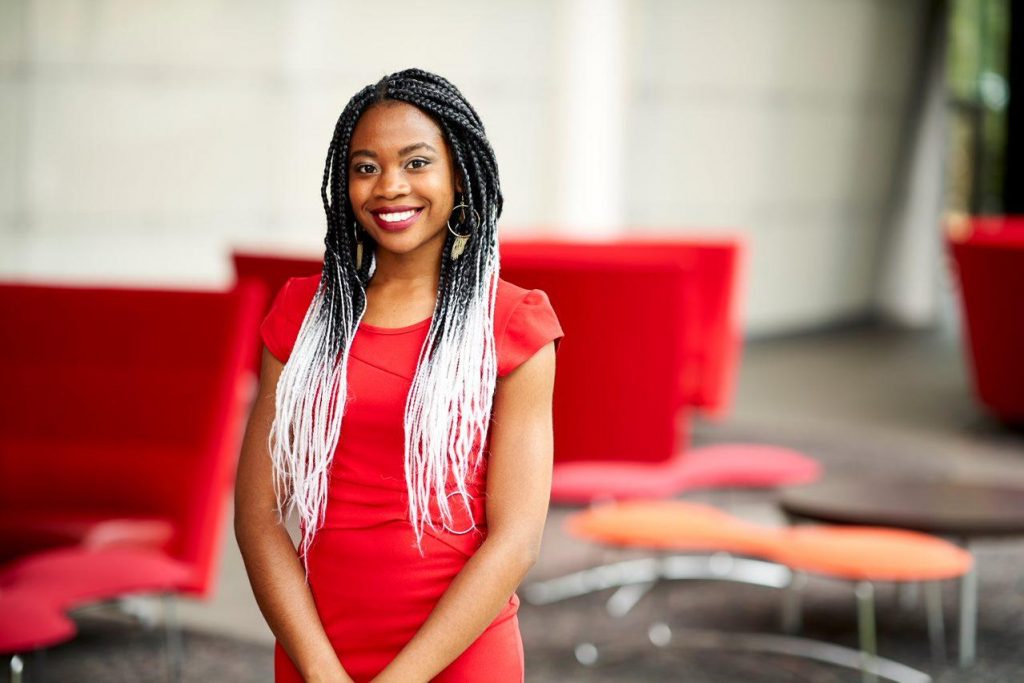Black History Month
What is Black History Month?
October is Black History Month in the UK. Every year we take time during this month to celebrate Black history, learn more about past events and reflect on the incredible Black people making history in the UK. This year the theme is Proud To Be, designed to honour the too-often unheralded accomplishments of Black Britons in every area of endeavour throughout our history.
Black History Month is important because looking at the past gives us vital context for present events, and it’s a wonderful opportunity to understand Black history and spotlight Black achievements. Learning about and celebrating the contribution and stories of often forgotten or neglected Black people is a great way to change the narrative going forwards.
With this in mind, we spoke to some of our colleagues from the charity to tell us what Black History Month means to them, and this is what they had to say:
An interview with Tanya Alexander, Educational Mental Health Practitioner:
Tell us about yourself –
My name is Tanya, I’m an Educational Mental Health Practitioner and I live in South London.
What makes you Proud?
I am proud to be working with an Independent Mental Health Charity, operating locally within communities, supporting children and young people with mental health issues. Our Mental Health Support Team aim to promote good emotional wellbeing and mental health in schools. With tailored services, we endeavour to support children, young people and their families, as well as educational staff, through prevention, early intervention and education. As part of this network, I benefit from shared support, knowledge and ideas, while campaigning to improve services and raise awareness.
Why does this make you Proud?
This makes me proud because early intervention is significant in the mental health of children and when a mental health issue first occurs, effective early intervention can tackle the problem directly, before it gets any worse and also works to prevent mental health issues occurring primarily. Early intervention helps children to foster a whole set of personal strengths and skills, that will prepare them for their later adult lives. It is through working collaboratively with these individuals and empowering them to make those positive changes, is what makes me most proud!
What does Black History Month mean to you – what’s it’s importance?
I view Black History Month not only as a time to reflect on the culture and contributions of black people and important events in Black History, but also as a time to commit to educating individuals and organisations about black history, heritage and culture as part of understanding racism and standing united against it.
Black History Month is also a time to tell the stories about those less well known, who get forgotten as they are never put on a platform.
Black History Month is a good time and opportunity to reflect on what more needs to be done to ensure equality. The task is to teach inclusion rather than exclusion, so all young people can prosper in a varied world where race nor religion holds power over all others.
Is there anything you’d like to share with us about your experiences of black history, heritage and culture?
As a person of dual heritage, growing up with parents from different backgrounds (White British and Black African decent), I experienced two different cultures at home and my identity was a mixture of the two. My sense of ‘who I was’ was based on my group membership (both black and white), which gave me a sense of belonging to the social world. However, amid society, I was often faced with doubt and misgiving from both cultures and experienced problems with what they assumed should be my true ethnic identity, and consequently I suffered more racial abuse than my peers of non-mixed minority.
During my adolescent years, I was under pressure to conform to peer customs. As white adolescents adhered to white customs and black adolescents adhered to black customs, I associated with both. This choice presented me with a higher cost for group acceptance, as I was expected to choose one custom, to gain acceptance.
I was often told I must be confused and conflicted about my identity because I was living between two cultural environments and it was unacceptable to develop my own personality containing dual identities (with a dedication of loyalty to each). Sometimes this lead to a lack of self-esteem and also social isolation.
For me, being of dual heritage is about sharing two cultures at the same time and including both parents. Although society has often made this difficult to maintain and simply label me as ‘black’, this disregards my mother. Therefore, I prefer to have independence over my identity and include both, because for me, this is a blessing.
An interview with Cristina Eddo, Educational Mental Health Practitioner:
Tell us about yourself – My name is Cristina Eddo and I am an Educational Mental Health practitioner. I am proud to be a mixture of Italian and Nigerian as I was born in Italy to amazing Nigerian parents.
What makes you proud? – I love culture and when I say I love it, I mean that I love food (yes, in Nigeria and Italy we have pretty delicious dishes), I love the importance of family and respect that is very popular in both countries, I love the Nigerian dance moves and I love how flexible and adaptable I have learnt to be thanks to the influence of both cultures in my life.
Why does this make you Proud? – I love culture so much, that I have decided to dedicate a whole season in my Podcast (Cristina’s talk show), where I reflected together with guests on what culture means, how we experience this and what our experience as foreigners can be.
What does Black History Month mean to you – what’s its importance? – Black history month goes beyond the month. It is actually a new concept to me as this was never really spoken about growing up in Italy. I actually think we should intentionally seek to learn about other people’s cultures, other’s realities and life experiences more. It is great to have a month dedicated to it but I would argue that Black history month can quickly become another Valentine’s day if not careful. Black history is a daily decision, just like loving is a daily decision.
Is there anything you’d like to share with us about your experiences of Black history, heritage and culture? – There is so much I actually don’t know even if I am black myself but I am always happy to talk about my experience as there is actually so much diversity in the black community! What I love about my black community is how resilient I have seen my community to be through decades and now and I believe this is to be celebrated and acknowledged always
I do not actually have much experience of Black History month per se, but what I would say is that there is no set way of celebrating this- my hope is that we all become more used to celebrating other cultures, learning from one another and using each other’s differences to grow TOGETHER!
Posted on: 21st October 2021



